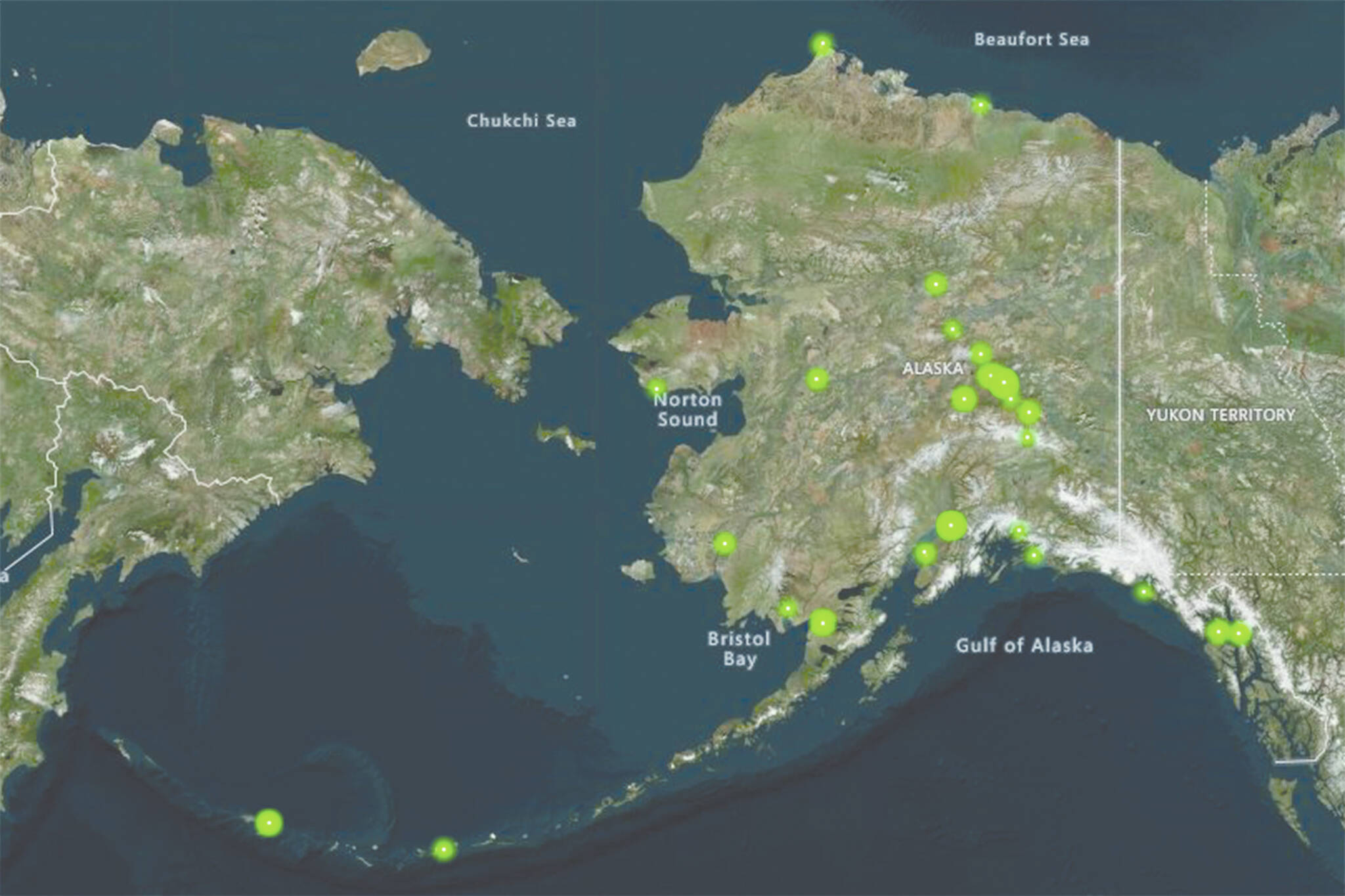A highly toxic class of chemicals called per- and polyfluoroalkyl substances (PFAS) are present in high concentrations in the public drinking water supply for Nikiski residents managed by Nikishka Bay Utilities. PFAS are extremely persistent and thus known as “forever chemicals.” Recent independent testing conducted by Alaska Community Action on Toxics found levels of PFAS in three drinking water samples that greatly exceed health-based standards. We detected 19 PFAS in these samples with combined concentrations of 1054.2 parts per trillion (ppt) and 882.7 ppt in drinking water samples from two local businesses, and 978.7 in a residential drinking water sample. The Environmental Protection Agency established health advisory levels for two commonly detected PFAS, PFOA and PFOS, at 0.004 and 0.02 ppt respectively.
PFAS are a class of more than 12,000 chemicals used in consumer products and industrial applications, including firefighting foams used on military bases and airports for fuel-related fires. They are highly mobile in water, and some are bioaccumulative in animals and humans. Low-level exposures to PFAS are associated with adverse health effects, including kidney and testicular cancer, ulcerative colitis, developmental and reproductive harm, low birth weight, liver disease, thyroid disease, elevated cholesterol levels, and immune system impairment.
Nikishka Bay Utilities and the Alaska Department of Environmental Conservation (ADEC) have been aware for years that the safety of this water supply was vulnerable due to past spills of industrial chemicals. It is likely that the source of the PFAS contamination is from the dispersive use of PFAS-based firefighting foams known as AFFF (aqueous film forming foams) in training exercises. People may have been exposed to these dangerous chemicals in their drinking water for many years, yet the utility only recently issued a warning and has not taken action to provide safe water.
The utility and ADEC must immediately provide a safe drinking water source for the people on this and other potentially contaminated water sources in the area. Filtration systems are not effective in removing many of the PFAS chemicals, so it is imperative to replace the existing contaminated shallow water aquifer with a safe source of drinking water. People who may have been exposed should receive medical monitoring and health care. The chemical manufacturers knew the hazards of PFAS chemicals for decades and withheld information about adverse health effects. These chemical manufacturers should be held accountable for costs associated with providing safe water and health care for the community, according to the “polluter pays” principle. The people of Nikiski have a right to clean and safe water.
Finally, it is important to note that in August, Gov. Mike Dunleavy vetoed a bill that would have phased out the use of PFAS-based firefighting foams, effectively preventing further harm from these hazardous chemicals. The legislation passed with near unanimity by the House and Senate in May. It is unconscionable that the governor would veto a bill that could protect public health, especially given the availability and effectiveness of safe alternatives. This is a travesty. How many more communities must be poisoned before responsible action is taken by this Administration?
Submitted by Dylan Jones, community science coordinator, and Pamela Miller, executive director of Alaska Community Action on Toxics.

